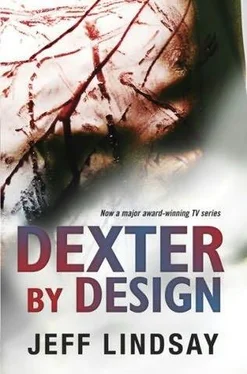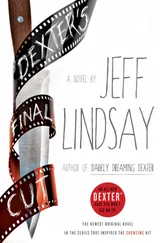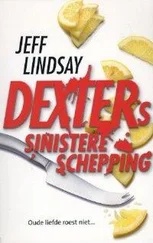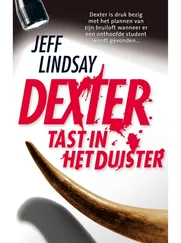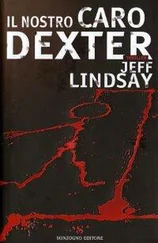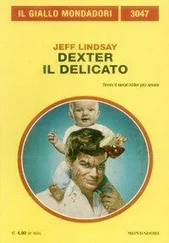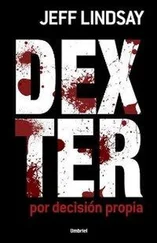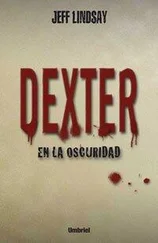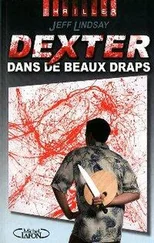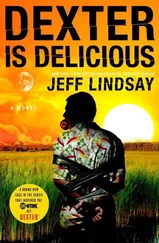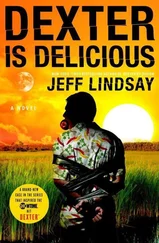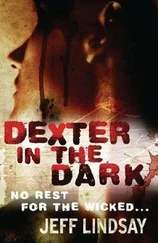“She's feeling kind of low,” Chutsky muttered to me. “Happens sometimes after you get chopped up.” From the number of scars all over Chutsky's face and body I had to assume he knew what he was talking about, so I just nodded and approached Deborah.
“Hey sis” I said, in the kind of artificially cheerful voice I had always understood you were supposed to use at an invalid's bedside.
She turned to look at me, and in the deadness of her face and the deep blue emptiness of her eyes, I saw an echo of her father Harry; I had seen that look before, in Harry's eyes, and out of those blue depths a memory came out and wrapped itself all around me.
Harry lay dying. It was an awkward thing for all of us, like watching Superman in the throes of kryptonite. He was supposed to be above that kind of common weakness. But for the last year and a half he had been dying, slowly, in fits and starts, and now he was very close to the finish line. Harry was dying, beyond any doubt, and as he lay there in his hospice bed his nurse had decided to help. She had been deliberately and lethally increasing the dose of his pain medicine and feeding on Harry's death, savoring his shrinking away, and he had known it and told me. Oh the joy and bliss, Harry had given me permission to make this nurse my very first real live human playmate, the first I had ever taken away with me to the Dark Playground.
And I had done so. First Nurse became the very first small drop of blood on the original glass slide in my brand new collection. It had been several hours of wonder, exploration and ecstacy, before First Nurse went the way of all flesh, and the next morning when I went to the hospice to report to Harry, the experience still filled me with brilliant darkness.
I came into Harry's room on feet that barely touched the ground, and as Harry opened his eyes and looked into mine he saw this, saw that I had changed and become the thing that he had made me, and as he watched me the deadness came into his eyes.
I sat anxiously beside him, thinking he might be at some new crisis. “Are you okay?” I said. “Should I call the doctor?” He closed his eyes and slowly, fragilely, shook his head.
“What's wrong?” I insisted, thinking that since I felt better than I ever had before, everyone else really ought to cheer up a little, too.
“Nothing wrong,” he said, in his soft, careful, dying voice. And he opened his eyes again and looked at me with that same glazed look of blue-eyed emptiness. “So you did it?” I nodded, almost blushing, feeling that talking about it was somehow embarrassing.
“And after?” he said.
“All cleaned up,” I said. I was really careful.”
“No problems?” he said.
“No,” I told him, and blurted out, “It was wonderful.” And seeing the pain on his face and thinking I could help I added, “Thank you, Dad.”
Harry closed his eyes again and turned his head away. For six or seven breaths, he stayed like that, and then, so softly I almost 229
couldn't hear him, he said, “What have I done ... Oh, Jesus, what have I done ...”
“Dad?” I said. I could not remember that he had ever spoken like this, saying bad words and sounding so very anguished and uncertain, and it was very unsettling and absolutely took the edge off my euphoria. And he just shook his head, eyes closed and would say nothing more.
“Dad ...?” I said again.
But he said nothing, just shook his head a few more painful times and then lay there quietly, for what seemed to me like a very long time, until at last he opened his eyes and looked at me, and there it was, that dead-eyed blue gaze that had moved beyond all hope and light and into the darkest place there is. “You are,” he said, “what I have made you.”
“Yes,” I said, and I would have thanked him again, but he spoke.
“It's not your fault,” he said, “it's mine,” and I did not know then what he meant by that, although these many years later I think I have begun to understand. I still wish I could have done or said something then, some small thing that would have made it easier for Harry to slide happily into the final dark; some carefully crafted sentence that made the self-doubt go away and let the sunlight back into those empty blue eyes.
But I also know, these many years later, that there is no such sentence, not in any language I know. Dexter is what Dexter must be, always and evermore, world without end, and if Harry saw that at the end and felt a final surge of horror and guilt —well, I really am sorry, but what else is there? Dying makes everyone weaker, subject to painful insight, and not always insight into any kind of special truth —it's just the approaching end that makes people want to believe they are seeing something in the line of a great revelation.
Believe me, I am very much an expert in what dying people do. If I were to catalog all the strange things that my Special Friends have said to me as I helped them over the edge it would make a very interesting book.
So, I felt bad about Harry. But as a young and awkward geek of a monster there was very little I could have said to make it easier on him.
Now, all these years later, seeing the same look in Deborah's eyes, I felt the same unhappy sense of helplessness wash over me. I could only gawk at her as she turned away and looked at the window once more.
“For Christ's sake,” she said, without looking away from the window. “Quit staring at me.” Chutsky slid into a chair on the opposite side. “She is a little cranky lately,” he said.
“Fuck you,” she said without any real emphasis, tilting her head to look around Chutsky and keep her focus on the window.
“Listen, Deborah,” he said. “Dexter knows where this guy is that hurt you.” She still didn't look, just blinked her eyes, twice. “Uh, and he was thinking that him and me might go get him actually. And we wanted to talk to you about it,” Chutsky said. “See how you feel about it.”
“How I feel,” she said with a flat and bitter voice, and then she turned to face us with a pain in her eyes that was so terrible even I could feel it. “Do you want to know what I really feel?” she said.
“Hey, it's okay,” said Chutsky.
“They told me I was dead on the table,” she said. I feel like I'm still dead. I feel like I don't know who I am or why or anything and I just ...” A tear rolled down her cheek and again, it was very unsettling. “I feel like he cut out all of me that matters,” she said, “and I don't know if I will ever get it back.” She looked back at the window again. I feel like crying all the time, and that's not me. I don't cry, you know that, Dex. I don't cry,” she repeated softly as another tear rolled down the track made by the first one.
“It's okay,” Chutsky said again, even though it clearly wasn't.
I feel like everything I always thought is wrong now,” she went on. “And I don't know if I can go back to being a cop if I feel like this.”
“You're gonna feel better,” Chustky said. “It just takes time.”
“Go get him,” she said, and she looked at me with a little trace of her good old anger showing now. “Get him, Dexter,” she said. “And do what you have to do.” She held my gaze for a moment, then turned back to the window.
“Dad was right,” she said.
THAT IS HOW EARLY NEXT MORNING I FOUND MYSELF standing at a small building on the outer edge of the runway at Miami International, clutching a passport in the name of David Marcey, and wearing what can only be called a leisure suit, green, with bright yellow matching belt and shoes. Next to me stood my associate director at Baptist Brethren International Ministries, the Reverend Campbell Freeney, in an equally hideous outfit and a big smile that changed the shape of his face and even seemed to hide some of the scars.
Читать дальше
